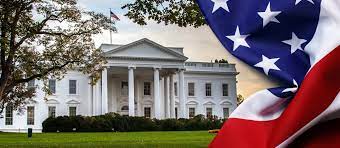
Overall request is for $6.4bn to help Ukraine and Eastern European nations
The White House on Friday told Congress that it will need an estimated $6.4 billion in new funding to assist Ukraine as it resists the Russian attack, most of it to bolster the Pentagon.
Since the 2014 Russian annexation of Crimea, the US has provided Ukraine with more than $2.7bn in security assistance, including about $650 million last year. The defensive aid includes Javelin anti-tank missiles, which Kiev has utilised in fending off Russian pushes into Ukraine.
Of the new assistance, $3.5bn would go to the Pentagon to respond to the crisis. READ MORE US and its allies step up sanctions on Russia after Ukraine invasion
The other $2.9bn would go towards humanitarian and security needs for Ukraine, the Baltic countries, Poland and other neighbours of Ukraine. It would be used for humanitarian and food aid, refugee assistance as well as towards energy and economic stabilisation, an administration official said.
“I have ordered the deployment of additional forces to augment our capabilities in Europe to support our Nato allies,” President Joe Biden said in a statement. He added that he welcomed the activation of elements of Nato’s Response Force “to strengthen our collective posture”.
Pentagon spokesman John Kirby said the US will also send more troops into Europe. The total number of those deployed will be between 10,000 and 12,000, the Pentagon said, up from the 8,500 that the US had planned for in January.
:quality(70)/cloudfront-eu-central-1.images.arcpublishing.com/thenational/4AAN6JWLDBPTSCORIFO7U5BOW4.jpg)
:quality(70)/cloudfront-eu-central-1.images.arcpublishing.com/thenational/M6IAJELE5ME4GXHTDEYMPOQ2SE.jpg)
:quality(70)/cloudfront-eu-central-1.images.arcpublishing.com/thenational/PDMKJSBRFCIJXWJ56P67KRZ2DE.jpg)
:quality(70)/cloudfront-eu-central-1.images.arcpublishing.com/thenational/J2YNRY5WRUQDO2JLELWUKS3YKQ.jpg)
:quality(70)/cloudfront-eu-central-1.images.arcpublishing.com/thenational/MZX2LHNY7B27SFJTLYBEHXPQEE.jpg)
:quality(70)/cloudfront-eu-central-1.images.arcpublishing.com/thenational/USW56JW5JSZSDMXENCX6LJNNAE.jpg)
:quality(70)/cloudfront-eu-central-1.images.arcpublishing.com/thenational/74GGOCV3567BUKGXC4CNPAGKSI.jpg)
:quality(70)/cloudfront-eu-central-1.images.arcpublishing.com/thenational/XOI72B7XEVPTSILKGEPUJK5DPU.jpg)
:quality(70)/cloudfront-eu-central-1.images.arcpublishing.com/thenational/YIJA3J7HHCUSVJ27NM4UDCLG7Y.jpg)
A solemn welcoming ceremony of US soldiers at Adazi military base, Latvia, on February 25, 2022. More than 300 soldiers of the 173rd Air Force Brigade arrived to demonstrate the US commitment to defend Nato allies and strengthen Latvia’s defence capabilities following Russia’s military operation in Ukraine. EPA
The Pentagon said Russia is facing more resistance than Moscow initially expected in its attack on Ukraine and claimed Moscow has lost some of its momentum.
“We do assess that there is greater resistance by the Ukrainians than the Russians expected,” a US defence official said.
Ukraine’s command and control of its military “remains intact”, the official added.
The White House earlier said the US would join European allies in imposing sanctions on Russian President Vladimir Putin and Foreign Minister Sergey Lavrov.
The announcement came after Mr Biden spoke with European Commission President Ursula von der Leyen.
“In alignment with the decision by our European allies, the United States will join them in sanctioning President Putin and Foreign Minister Lavrov and members of the Russian national security team,” White House Press Secretary Jen Psaki said.
State Department spokesman Ned Price reiterated that if Mr Putin escalates the situation, Washington would do the same.
“We have not seen any indication that Mr Putin is prepared to de-escalate. We have not seen any indication that he is willing to create the conditions in which diplomacy can succeed,” he said.
Mr Price added that Ukrainian soldiers had shown considerable courage in facing off against Russian forces.
“We have seen Ukrainian soldiers demonstrate incredible bravery in the first day of self-defence, shooting down Russian aircraft firing tanks and holding many of the positions while under violent assault.”


